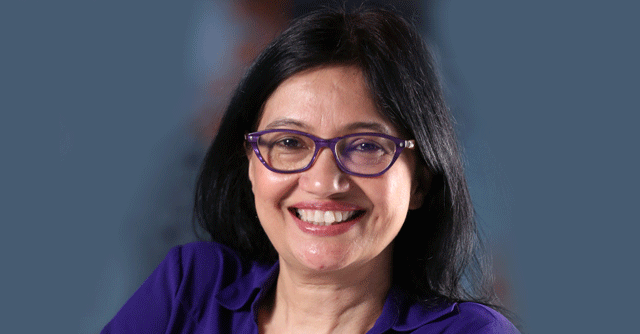
Technology will catalyze India’s rapid and inclusive growth in 2023


 In recent years, technology permeated almost every aspect of our lives as we witnessed a surge in digitalization across sectors. India made significant strides in its digitalization journey with expansion of internet connectivity across rural and urban areas, a wealth of data generated and consumed, and an ever-increasing number of digital services.
In recent years, technology permeated almost every aspect of our lives as we witnessed a surge in digitalization across sectors. India made significant strides in its digitalization journey with expansion of internet connectivity across rural and urban areas, a wealth of data generated and consumed, and an ever-increasing number of digital services.
For instance, data from the National Payments Corporation (NPCI) shows that UPI transactions crossed a record 7 billion in October. Similarly, in the first half of the year India’s IT and business services market grew 7.4%, compared to 6.4% a year ago, according to the International Data Corporation. India’s growing base of 700 million active internet users enjoys one of the world’s lowest data tariffs and accounts for the highest wireless data consumption at a staggering 17 GB per month, thanks to an explosion in innovative business-to-consumer, business-to-business, and government-to-citizen services.
The rollout of 5G also heralded the beginning of the next era in network and connectivity technology. India’s data centre capacity is also set to more than double from 737 MW to 1752 MW in the next two years, according to an ANAROCK-Binswager report in September.

Along with these foundational technologies, the past year saw innovations that enriched lives by accelerating digital inclusion at population scale. In 2023, we expect key tech trends will continue to create significant impact on our lives.
Scaling artificial intelligence (AI) innovations to transform key sectors
As a powerful enabler for growth, AI is expected to add $967 billion to the Indian economy by 2035, and $450–500 billion to India’s GDP by 2025, accounting for 10% of the country’s $5 trillion GDP target. Key sectors like healthcare, banking and finance, retail and automotive will double down on AI adoption. For example, in healthcare, AI is already being integrated into diagnostic algorithms for screening for diseases ranging from cancer to cardiovascular disease.

We also expect innovative AI frameworks like secure Federated Learning will revolutionize healthcare in 2023. Accessing data silos scattered across hospitals and health systems in different regions while adhering to regulatory requirements has been a significant challenge. The creation of AI-enabled health tech solutions will be made possible by a secure Federated Learning platform that will assist in data analysis and uphold patient data security and confidentiality, where it is generated.
Building a hyperconnected world with 5G
The launch of 5G services in India marks a defining moment for both domestic and global 5G markets. It is predicted to contribute up to 2% of India's GDP by 2030, which is about $180 billion. 5G will be a critical catalyst of digital inclusion, leveling the playing field to power an inclusive future for all. Greater bandwidth, ultra-low latency, and faster connectivity will revolutionize industries, and enhance day-to-day experiences. With its support for numerous sensors, real-time data dissemination, and analysis, 5G will help lead the development of a massive IoT and Edge ecosystems, changing power utilities, smart city functions, e-health, traffic systems, and connected cars forever.

Alongside the rise of 5G, the focus on enabling India’s hinterland with over 6,30,000 villages will gain momentum. Access to broadband connectivity can transform rural communities – youth can leverage online vocational training to get upskilled and enhance their employability, farmers can benefit from technologies to enhance yields and artisans and microentrepreneurs can tap into larger markets in India or overseas through ecommerce and financing.
Digital innovations will continue to accelerate
The pace of digitalization is unparalleled, leading to an exponential amount of data being generated every day. There are five forces in play that feed on this data – Sensing, Compute, Pervasive Connectivity, Cloud to Edge infrastructure, and AI. As these five superpowers become ubiquitous, they unlock powerful new possibilities. All of these, powered by semiconductors, continue to drive innovations that will help scale businesses.

As a fast-growing economy, India is experiencing tremendous growth driven by technology. The opportunity for the technology ecosystem is to innovate with a focus on developing and scaling key technologies that reach every citizen. Sustained and inclusive growth truly demonstrates the purpose of technology. India’s goal of doubling its GDP and having a trillion-dollar digital economy must enable growth for all in this ambitious journey.

Nivruti Rai
Nivruti Rai is the Country Head, Intel India and Vice President of Intel Foundry Services.
